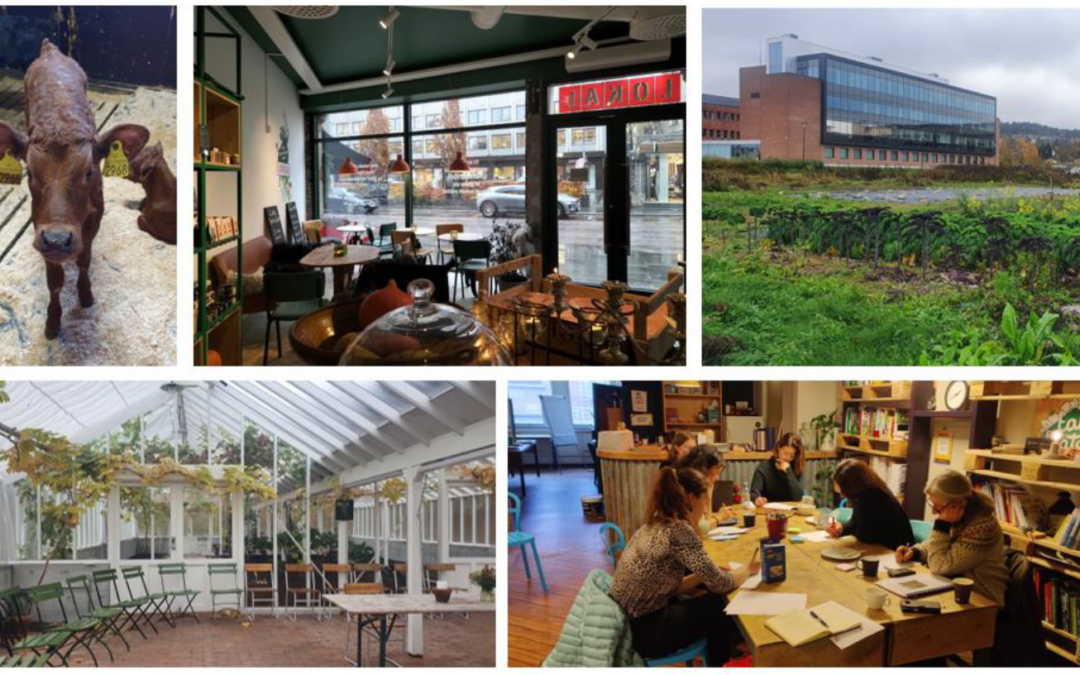In fall of 2022, a group of students from the first-semester MSc Agroecology course at the Norwegian University of Life Sciences (NMBU) conducted a stakeholder case study to analyze Oslo’s food system. The students, hailing from Germany, France, USA, Nigeria, and Norway, worked closely with FUSILLI and sister project FoodE, two projects in the city of Oslo working towards a sustainable food system transformation. The students’ research aimed to identify current challenges and opportunities within the food system and propose actionable steps for improvement.
In Oslo, FUSILLI and the municipality are collaborating with two primary objectives: the reduction of meat consumption and food waste. In parallel, the city hopes to achieve a 95% reduction in emission targets, improve public health, and mitigate continued negative anthropogenic impacts on the environment brought about by climate change.
The students conducted interviews with key stakeholders and held a visionary workshop to gain insights into their perceptions of Oslo’s food system. The interviewees:
Line Tveiten, FUSILLI’s project manager within the Municipality of Oslo’s Urban Environmental Agency, and
Adam Curtis, CEO of the non-profit “think-and-do-tank” Nabolagshager and project manager of FoodE within the city of Oslo.
FoodE
FoodE is a project led by the University of Bologna that brings together 24 organizations from 8 different European countries. Its aim is to accelerate and grow sustainable and resilient citizen-led urban food system initiatives across Europe by engaging with a wide range of actors.
Their stakeholder report examines Oslo’s current food system and the emerging Alternative Food Network through rich picturing, theme identification, and systems mapping. Additionally, they developed a vision for the city’s ideal future state in 2032.
After analyzing the data, the students proposed a twofold action plan to facilitate the improvement of Oslo’s Alternative Food Network. First, they suggested the creation of a Food Policy Council to guide the city’s sustainable transition. Second, they recommended the establishment of a Sustainable Food and Agriculture Agency within the municipality to ensure the city’s food system is sustainable and resilient.
To conclude, the students’ stakeholder case study provided valuable insights into the current state of Oslo’s food system and the emerging Alternative Food Network. Their two-fold action plan offers practical solutions for policymakers and stakeholders to implement for a sustainable and resilient food system in Oslo. With the collaboration of critical stakeholders, such as FUSILLI and FoodE, and the implementation of the proposed action plan, Oslo can work towards reducing meat consumption, mitigating negative anthropogenic impacts on the environment, and improving public health.
